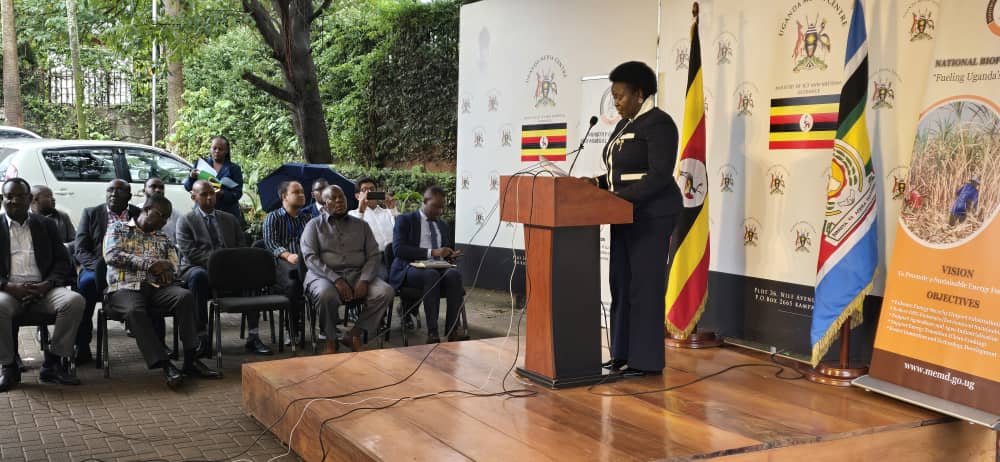Uganda’s Ministry of Energy has announced a new fuel policy that will require all petrol sold in the country to be blended with locally produced ethanol starting January 2025, a move aimed at reducing the country’s heavy reliance on petroleum imports while promoting environmentally friendly fuel alternatives.
The directive, issued on Tuesday, mandates that fuel distributors blend a minimum of 5% ethanol into all petrol at the outset of the programme. Over time, the ethanol ratio will be gradually increased to 20%, depending on the availability of local supply. This initiative forms part of Uganda’s broader national strategy to promote clean energy and reduce carbon emissions across the transport sector.
Uganda, a landlocked East African nation, currently imports about $2 billion worth of petroleum products annually, making fuel one of its largest import expenditures. The government believes that blending ethanol into petrol will significantly reduce the national import bill while simultaneously supporting the local biofuels industry.
According to the energy ministry, ethanol will be primarily sourced from molasses, a byproduct of the sugar manufacturing process. Uganda has a growing number of sugar factories, particularly in the central and eastern regions, many of which already produce ethanol on a small scale. The ministry has not yet disclosed the names of approved ethanol suppliers or whether new investment incentives will be introduced to support production.
The statement described the initiative as part of Uganda’s commitment to the transition to cleaner energy sources, with ethanol-blended petrol expected to reduce greenhouse gas emissions, improve air quality, and create new economic opportunities in rural areas through the growth of the sugar and biofuel industries.
This shift aligns Uganda with several other countries in Africa and globally that have adopted fuel blending policies as part of their clean energy transition. Countries like Kenya, South Africa, and Nigeria have explored or implemented similar mandates to increase the use of ethanol and biodiesel in transport fuels.
The Ugandan government granted exclusive rights for the supply of all petroleum products to Vitol Bahrain E.C., a subsidiary of the global energy trading giant Vitol, in 2023. This centralised fuel import arrangement is intended to ensure stability in supply and pricing, but it also means that any adjustments in national fuel specifications, such as ethanol blending, must be coordinated closely with Vitol and downstream distributors.
The new ethanol blending policy is being introduced just as Uganda prepares to enter a new phase in its energy sector. The country is expected to start commercial oil production in 2026, with crude oil exports planned through the East African Crude Oil Pipeline (EACOP) to the Tanzanian Indian Ocean port of Tanga. Despite its growing oil reserves, the government has emphasised that biofuels and renewables will continue to play a central role in Uganda’s long-term energy mix.
The ministry’s statement said the 5% ethanol blend will be enforced nationwide beginning in January 2025. Fuel distributors will be required to comply with the new standard or risk regulatory penalties. Inspections and fuel quality monitoring will be stepped up to ensure compliance.
Industry players are cautiously optimistic about the policy, though some have raised concerns about whether Uganda’s ethanol production capacity is sufficient to meet national demand, especially in the early stages. There are also questions about pricing, logistics, and infrastructure readiness, including the availability of blending facilities at fuel depots.
However, proponents say the initiative could boost local industry, job creation, and rural incomes. Smallholder sugarcane farmers and ethanol producers stand to benefit from increased demand for molasses, which has often been treated as a low-value byproduct. If scaled effectively, the ethanol blending programme could eventually lead to export opportunities for Uganda within the region.
The blending programme will be closely monitored, with adjustments made based on production output and fuel supply chain capacity. The government is expected to release further regulatory guidelines, including blending procedures, ethanol quality standards, and distribution protocols, in the coming months.
Experts believe that successful implementation will require strong coordination between the Ministry of Energy, Uganda National Bureau of Standards (UNBS), fuel importers, sugar producers, and ethanol manufacturers. It may also depend on financial incentives or subsidies to make ethanol blending economically viable during the transition phase.
As global pressure to reduce fossil fuel consumption intensifies, Uganda’s move marks an important step toward greener transport and energy diversification. Whether it will be a model for other East African nations remains to be seen, but stakeholders agree that it reflects a bold shift in national energy policy.
